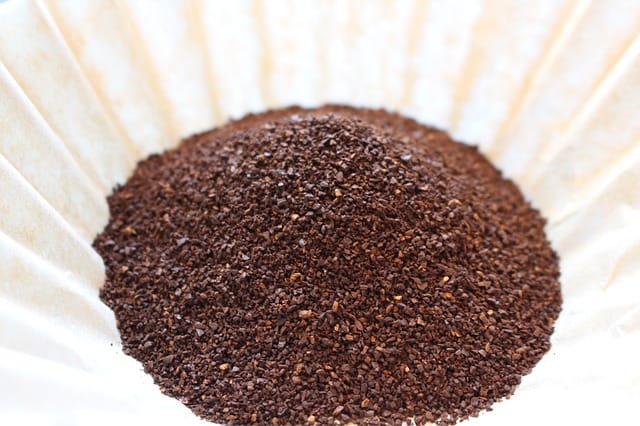There is much debate on whether or not sprouts are safe to eat daily. On the one hand, sprouts have excellent nutritional value, but on the other hand, they carry a higher risk of contamination and food poisoning. However, you are unlikely to experience any adverse side effects as long as you consume them in the right way.
Continue reading to discover what happens to our bodies when we consume sprouts daily, what the benefits are, how to prepare sprouts for consumption, and the best time of day to consume them.
What Will Happen If I Eat Sprouts Daily?
Including sprouts in your daily diet carries a minor risk of food poisoning, but as long as you store and cook your greens properly, the positives far outweigh the risks. Eating sprouts daily means you’ll likely improve your gut health and avoid constipation.
Because sprouts are low in calories and high in protein, including them in your daily diet means that you are less likely to snack on junk foods because you feel fuller for longer.
As you increase your consumption of sprouts, you will likely notice that you feel more energized. Daily sprout consumption can boost your metabolism while building muscle and repairing your organs.
Suppose you suffer from iron deficiency or anemia. In that case, a handful of sprouts can alleviate the worry of your iron requirements by supplying adequate iron levels to prevent dizziness, nausea, and stomach issues.
What Are The Benefits Of Eating Sprouts Daily?
Sprouts are highly nutritious and a low-calorie source of various vitamins, minerals, and essential nutrients. Through the sprouting process, the levels of vitamin C, vitamin K, protein, magnesium, phosphorus, and folate increase.
Additionally, this process reduces the number of antinutrients in the vegetables, making them easier to consume. And sprouts are an excellent source of antioxidants.
Some studies have suggested that sprouts may help regulate your blood sugar by controlling the amylase enzyme, which your body uses to break down sugar.
And daily consumption of sprouts may help you to digest other foods more efficiently. Sprouted seeds contain increased amounts of insoluble fiber, which helps to move waste through the gut. Sprouting seems to reduce the amount of gluten in food to improve digestion and help those with gluten sensitivities.
What Are The Dangers Of Eating Sprouts Daily?
One of the main concerns around sprout consumption is the increased risk of food poisoning Sprouts are likely to be eaten raw or only partially cooked. As they have grown in humid conditions, they provide the perfect environment for creating E.coli and Salmonella.
If you don’t eliminate the bacteria from your sprouts before eating, you will likely experience adverse side effects such as stomach cramps, bloating, and diarrhea.
As with any food, there is always a risk of allergy, so it’s worth consulting a medical professional before making any changes to your diet.
How Can I Safely Prepare Sprouts?
When growing, purchasing, or eating sprouts, there are a few essential tips to keep in mind:
- Wash sprouts thoroughly before consuming them.
- Always wash your hands before you handle sprouts.
- If cooking sprouts opt for steaming, as this retains more nutrients than frying or roasting.
- Never buy or eat sprouts that are slimy or give off a pungent smell.
- When refrigerating sprouts, keep them between 34 – 38 degrees Fahrenheit.
- If you choose to grow sprouts at home, employ proper sanitation processes.
How Can I Include Sprouts In My Daily Diet?
Sprouts are incredibly versatile, which means that you can incorporate them into a vast array of meals. They can be added raw to salads and sandwiches or thrown into heated dishes such as stir-fries, omelets, and soups.
Alternatively, you can blend sprouts into smoothies or grind them into a paste to use as a spread. The possibilities are endless.
Can Sprouts Increase Weight?
Though sprouts are often associated with weight loss, you can also use them for weight gain; it all depends on the quantities you consume.
Due to the high protein levels of sprouts, daily consumption can aid in weight gain when combined with carbohydrates.
What Happens If We Eat Moong Sprouts Daily?
Mung Beans are a rich source of B vitamins and magnesium, potassium, copper, zinc, and folate. But, it may be better to eat a variety of sprouts for an all-around increased nutritional content.
Additionally, mung beans can be hard to digest as sprouts such as alfalfa contain the toxin L-Cavanine, which reduces blood cell count and could lead to spleen enlargement. While adverse side effects are unlikely, experts recommend that you eat Moong sprouts in the same moderation as you would other food sources.
What Time Is Best For Eating Sprouts?
The best time to eat sprouts is between when you wake up and midday. They can provide an abundance of energy to your body which you can best utilize throughout the day.
Furthermore, eating sprouts with breakfast can help you feel fuller for longer and make you less likely to snack during the day. The best way to consume sprouts is by adding them to your regular meals for a boost of energy that lasts throughout your day.
While it’s nutritionally best practice to eat sprouts in the morning, some people opt to eat them slightly later in the day due to some of their more undesirable effects.
Meals that contain sprouts can cause gas and the need to visit the bathroom more often than usual. This is due to the fiber content and why some people opt to eat them slightly later in the day.
Can Sprouts Be Eaten On An Empty Stomach?
Sprouts can be eaten on an empty stomach and can remove toxins from the body.
Can We Eat Sprouts At Night?
In general, you can eat sprouts at any time for a nutrition boost. However, it can be best to avoid them at night as they can disturb your sleep while your body is busy processing all of the nutrients.
Should I Eat Sprouts Before A Workout?
Thanks to their nutrition and energy boost, it would be easy to assume that sprouts would be a great snack before hitting the gym. But, the problem is that sprouts also contain high amounts of fiber which could leave you feeling gassy and bloated, the last thing you want when you’re trying to work out.


